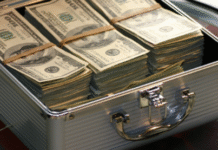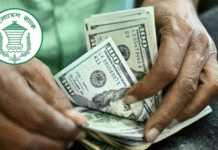
As inflation tightens its grip on household budgets nationwide, the Chattogram Port Authority is considering a steep 70%-100% increase in cargo handling tariffs – a move that risks sending shockwaves through an already strained economy.
At a 2 June meeting at the Ministry of Shipping, officials debated the long-pending tariff adjustment, with the shipping adviser pushing for a final decision by month’s end. Stakeholders have been asked to submit written feedback ahead of a decisive meeting later in June, according to port officials.
Though the hike remains under discussion, its potential scale has alarmed importers, exporters, and economists, who warn it could drive up prices for essentials – from food to manufactured goods – deepening consumer distress.
A long-delayed adjustment?
Nasir Uddin, the port’s chief personnel officer and spokesperson, defended the proposal, calling it overdue. “Tariffs haven’t been revised since 1986. This increase will help cover rising operational costs and fund service improvements,” he said.
The revision spans nearly 50 services, including port dues, berthing fees, forklift charges, and utility costs. While five services saw minor updates in FY08, the rest have remained frozen for decades.
For instance, handling a standard 20-foot container (TEU) – which typically involves unloading to release cargo – now costs importers around Tk15,000 ($123). Under the proposed plan, this could rise to Tk25,000–Tk30,000.
Port officials argue that Chattogram’s fees remain far below regional peers – unloading a TEU costs $100 in Colombo, $75 in Singapore, and just $43.40 at Chattogram.
Profits vs pressure
In 2024, the port’s revenue hit Tk5,055 crore ($430 million), up 21% from 2023, while its surplus jumped 37% to Tk2,948 crore ($250 million). Despite robust earnings, officials cite rising operational costs as justification for higher tariffs.
Business leaders, however, call the move ill-timed. Nurul Qayyum Khan, president of the Bangladesh Inland Container Depot Association, said a modest 15% hike would be more reasonable.
“Businesses are already reeling from currency depreciation, freight costs, and weak demand,” he warned. “A drastic increase could push many to the brink.”
Importers, exporters brace for impact
Importers say the hike would compound existing struggles. Mohammad Akter Hossain, an importer and managing director of Rashed Brothers, noted that port storage rents quadrupled in March. With customs delays often stranding containers for 10-15 days (against a four-day free window), daily fees of $48 per container already strain margins.
“If tariffs double, consumers will bear the brunt – there’s no room left to absorb costs,” he said.
Exporters, particularly in the garment sector (which accounts for over 80% of Bangladesh’s exports), fear losing competitiveness. Belayet Hossain, a former BGMEA director, urged a phased increase: “A 10%-20% rise is manageable. Anything more will hurt at both ends – raw material imports and finished goods exports.”
Broader economic risks
Handling 93% of Bangladesh’s trade, Chattogram Port is a lifeline for everything from wheat and edible oil to industrial machinery. A sharp tariff spike could ripple through supply chains, exacerbating food inflation and squeezing low- and middle-income families.
Economist Anu Muhammad cautioned that the move could worsen inflation. “Imported goods will get costlier, and businesses will pass the burden to consumers,” he said. “Squeezing trade during an inflationary crisis is misguided – the public will pay the price.”









